Blues in the Night

Brief Synopsis
Cast & Crew
Anatole Litvak
Priscilla Lane
Betty Field
Richard Whorf
Lloyd Nolan
Jack Carson
Film Details
Technical Specs

Synopsis
Pianist Jigger Pine organizes a quintet consisting of drummer Peppi, clarinet player Nickie Haroyan, bass player Pete Bassett and trumpeter Leo Powell, which is dedicated to playing jazz and blues. Together with Leo's wife Character, a singer, the group plays throughout the South, hitchhiking and hopping trains to get around. Along the way, Character becomes pregnant, but refuses to tell Leo because she is afraid that he will leave her. One day, a man named Del Davis rides in the same railroad car and steals the band's meager funds. When they do not turn him in to the authorities, Davis, an escaped convict, offers to give them a job at the New Jersey roadhouse that he owns. Also at the roadhouse are Davis' former accomplices, Sam Paryas, crippled Brad Ames and sultry Kay Grant. The three are not happy to see Davis, whom they set up to take the blame for their crimes. Working well together, the band soon draws a lively crowd to the roadhouse. Hoping to make Davis jealous, Kay flirts with Leo, and Jigger begs her not to break up the band. Kay ignores Jigger, but when Leo learns he is to be a father, he happily devotes himself to Character. Kay then transfers her attentions to Jigger, who tries to resist her, but when a doctor tells Character that she must stop singing until after the baby is born, Jigger suggests that Kay take her place. Despite the protests of the band, Jigger works hard to improve Kay's singing. When she finally rebels, Jigger tells her that he loves her. Brad overhears and advises Jigger to keep away from Kay, adding that his own love for Kay resulted in the accident that crippled him. When Kay tries to win Davis back by revealing Sam's plan to turn him in to the police, he kills Sam and orders Kay to leave. Despite his loyalty to the band, Jigger takes a job playing piano for a more traditional band and leaves with Kay. Jigger longs to return, but when he begs Kay to come with him, she laughs at him, saying that she has always been in love with Davis. The rejected Jigger goes on a drunken binge and is eventually found by his friends, who bring him back to the roadhouse to recover. Shortly afterward, Kay also returns to beg Davis to take her back. When he refuses, Kay angrily threatens to turn him in, forcing Davis to pull a gun on her. Jigger rushes to Kay's defense, and in the struggle, Davis drops the gun, which Kay then uses to kill him. Jigger is about to leave with Kay, but the band members intercede, telling him that the stress of the last separation caused Character to lose her baby. Not wanting Jigger to ruin his life, Brad drives Kay over a cliff, killing them both. Together again, the band goes back on the road.

Director

Anatole Litvak
Cast

Priscilla Lane

Betty Field

Richard Whorf
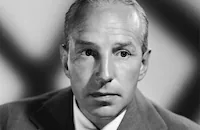
Lloyd Nolan

Jack Carson
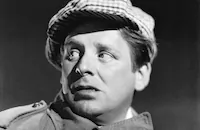
Wally Ford

Elia Kazan
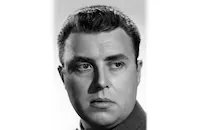
Peter Whitney

Billy Halop
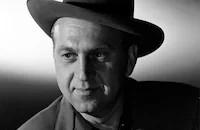
Howard Da Silva
Herbert Heywood
George Lloyd
Charles Wilson
Matt Mchugh
Jimmy Lunceford
Will Osborne
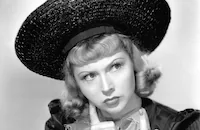
Joyce Compton
Mabel Todd
William Gillespie
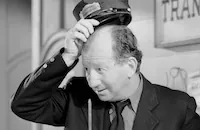
Hank Mann
Cliff Saum

Jack Mower

Lee Phelps
Bill Hopper
Billy Wayne
Pat Mcveigh
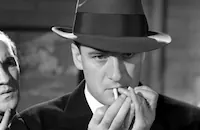
Elliott Sullivan
Louis Natheaux
Fred Kelsey
Anthony Warde
Sol Gorss
John Dilson

John Hamilton

Emmett Vogan
Robert Homans
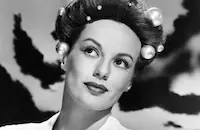
Faye Emerson
Leah Baird
Faith Dorn

Juanita Stark

David Gorcey
George Offerman Jr.
Jean Ames
Ann Edmonds
Ernest Whitman
Napoleon Simpson
Dudley Dickerson
Bill Phillips
Cyril Ring
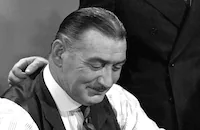
Ed Keane
Harrison Greene
Creighton Hale
Eddie Graham
Frank Mayo
Roland Drew

Charles Irwin
Hal K. Dawson
Crew
Harold Arlen
Henry Blanke
Everett A. Brown
Leo F. Forbstein
Damon Giffard
Edwin Gilbert
Ernie Haller
Ray Heindorf
Lee Katz
Owen Marks
Johnny Mercer
Max Parker
H. Roemheld
Archie Rosate
Robert Rossen
Don Siegel
Perc Westmore
Harold Winston
Stan Wrightsman
"snookie" Young
Frankie Zinzer

Videos
Movie Clip






Trailer
Film Details
Technical Specs

Award Nominations
Best Song
Articles
Blues in the Night
For Kazan, Blues in the Night would prove to be his final film as an actor. He had previously played the heavy in a James Cagney drama, City for Conquest (1940), directed by Anatole Litvak, and although he received good notices for his performance, his career soon took a different path. In his autobiography, A Life, Kazan recalled that "when City for Conquest opened, the review that generally passed as the industry's judgment on the movie and the people who'd made it appeared in the Hollywood Reporter. Arthur Kennedy and I, as newcomers, were praised, but a distinction was drawn. After predicting a great future for Arthur, the Reporter's critic had written: 'However, Elia Kazan, having equally as much ability, because of his looks will present a casting problem.' I had a different final judgment; it was: "I sure as hell can direct better than Anatole Litvak." Kazan's confident attitude was confirmed by working with Litvak yet again on Blues in the Night: "Warners had bought a play I'd owned for a while, then given up on. It was about a jazz band and the conflicts among its members. I hadn't been able to get up the money for a production, so the author and I decided to sell it. Litvak, who knew nothing about this kind of music, was going to direct it. I suppose he was looking for another "real American" subject to shake off the label "European director." He'd offered me the part of the clarinet player, but I hadn't been anxious to work with him again, so had delayed my response. The house in the country decided me. The job would bring us the money we needed, and it would give me a chance, alone in California, to clear my head."
Kazan would live to regret his decision for in his autobiography, he later wrote, "Acting," an old critic said, "is a lamp placed in the soul of man so we can see who we are and who we wish we are." Not that summer, not on the Litvak set. When Blues in the Night comes on the late-late show, I advise you to skip it....I decided that summer that I'd never act again. And I never did." Yet despite, Kazan's harsh opinion of the film, Blues in the Night is a consistently fascinating melodrama with a schizophrenic personality; it's jarring combination of soap opera and musical numbers is enhanced by occasional sharp dialogue by screenwriter Robert Rossen and moody black and white cinematography by the great Ernest Haller (an Oscar winner for Gone With the Wind, 1939). Then there's that unforgettable title song which was nominated for an Oscar and proved to be so successful that the film's title was changed from Hot Nocturne to Blues in the Night just prior to its theatrical release.
Producer: Henry Blanke
Director: Anatole Litvak
Screenplay: Edwin Gilbert, Robert Rossen
Art Direction: Max Parker
Cinematography: Ernest Haller
Editing: Owen Marks
Music: Heinz Roemheld, Harold Arlen, Johnny Mercer
Cast: Priscilla Lane (Ginger Powell), Betty Field (Kay Grant), Richard Whorf (Jigger Pine), Lloyd Nolan (Del Davis), Jack Carson (Leo Powell), Wallace Ford (Brad Ames), Elia Kazan (Nickie Haroyan.
BW-88m.Closed captioning.
by Jeff Stafford

Blues in the Night
Quotes
Trivia
Notes
According to contracts included in the file on the film at USC Cinema-Television Library, Elia Kazan collaborated with Edwin Gilbert on the play, but for reasons that were not made clear in the file, agreed to have his name removed from the credits. The film's working titles were Hot Nocturne and New Orleans Blues. News items in Hollywood Reporter note that the film was originally to star James Cagney and that Dennis Morgan was considered as his replacement. Richard Whorf then replaced John Garfield in the lead. Johnny Mercer received an Academy Award nomination for their song "Blues in the Night."















